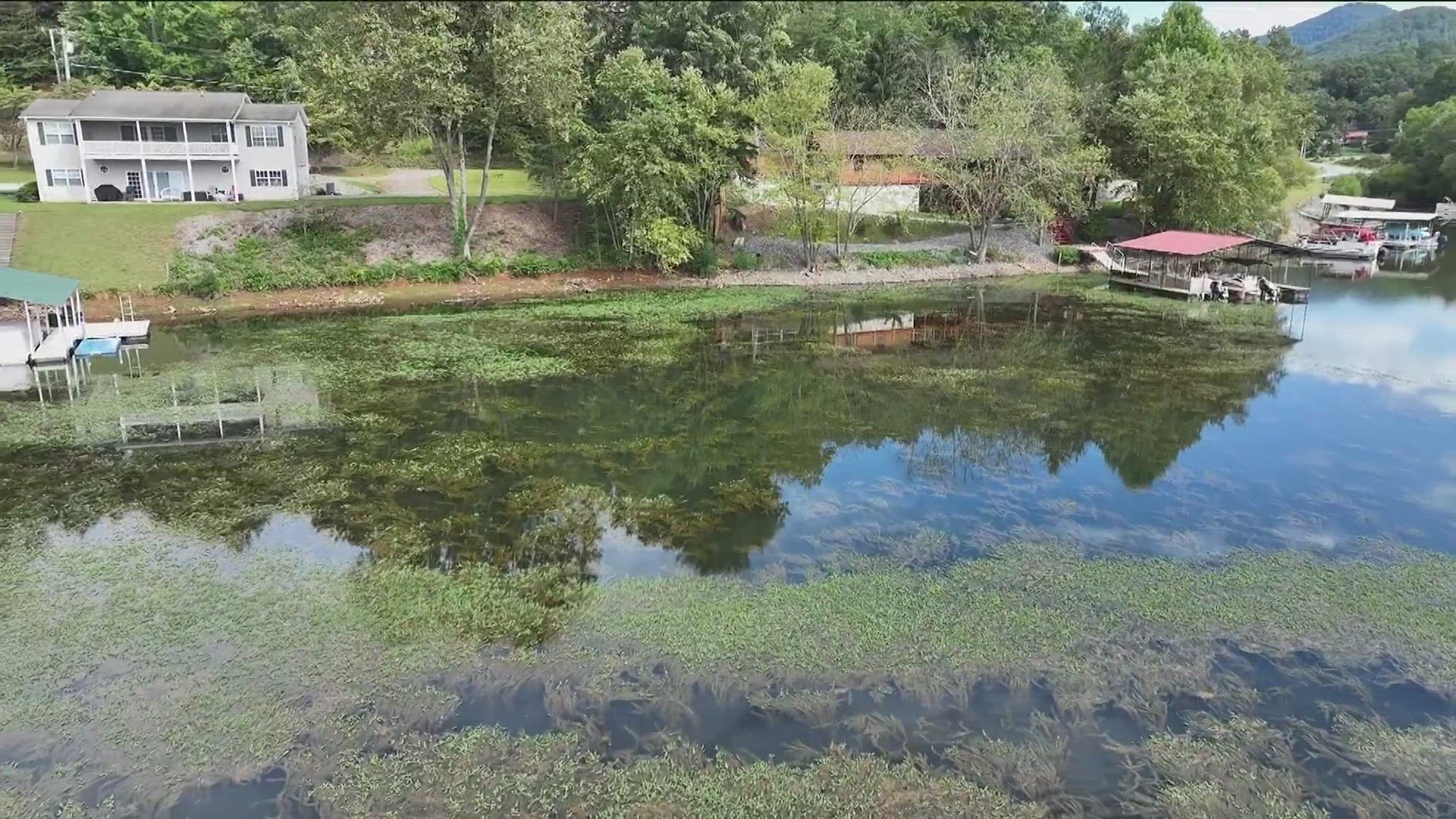TOWNS COUNTY, Ga. — Lakeside homeowners in north Georgia say an invasive weed is spreading across the water like wildfire - and they’re concerned it could threaten the area's economic future.
Lake Chatuge’s marinas make it one of the most popular lakes in Georgia for swimming, boating, and fishing. But homeowners are worried it's all threatened by an invasive weed known as parrot feather.
“It used to be so beautiful. You walk in and look out and see the beautiful lake and the mountains in the background and now frankly when I go up there – all I see is that parrot feather," said Ron Farmer, a homeowner on the lake.
Parrot feather is known as one of the world's most invasive plants. It can grow into thick walls, choking off water life and stifling the flow of boats and swimmers alike.
And now parrot feather is visible everywhere along the southern portion of Lake Chatuge.
"It grows fast and travels fast," Farmer said. "It’s like kudzu in the water.”
Farmer said that besides the environmental and aesthetic impact on the lake, he’s worried about the havoc parrot feather could cause on property value.
“My next-door neighbor just put his house up for sale," he said. "And who’s going to want to buy a house where you can’t get in the water?"
He added it's a concern not just for individual homeowners, but for the entire local economy that thrives off its water life.
"There’s not a lot of industry up there," Farmer said. "So many peoples' jobs is supporting tourism and if tourism suffers because of this species, how many people will lose their jobs?”
The 7,000-plus acre lake that spans across both Georgia and Tennessee is managed by the Tennessee Valley Authority. A spokesperson said it is aware of the plant’s presence and are gathering data to see if it's possible to treat. Read TVA's statement at the bottom of this story.
But homeowners like Farmer say the longer they wait, the more that is at stake for the entire region.
"It travels by boat, so a fisherman gets a little caught in his propeller and that same fisherman could go to Lake Lanier and then it’s in Lake Lanier and Lake Blue Ridge, etc.," he said.
TVA officials did not give a timeline of when their data-gathering process will be complete, adding that historically they only treat public-use areas on an as-need basis.
Tennessee Valley Authority statement on Chatuge
"In recent months, TVA biologists confirmed the presence of Parrot’s Feather (Myriophyllum aquaticum) on Chatuge, primarily on the southern portion of the lake.
'"Parrot’s Feather is a non-native species and is native to South America. It was introduced to the United State through the aquarium industry. It will grow in about 8-10 feet of water.
TVA is gathering data in preparation for an environmental study to determine if it’s possible to treat for the plant along public areas such as parks and boat ramps. Historically, TVA’s approach is to manage developed public use areas on an as-needed basis.
Owners of private property along the lake concerned with growth of Parrot’s Feather can search a list maintained by the Georgia Department of Agriculture to find aquatic plant applicators who work the Chatuge Reservior."

